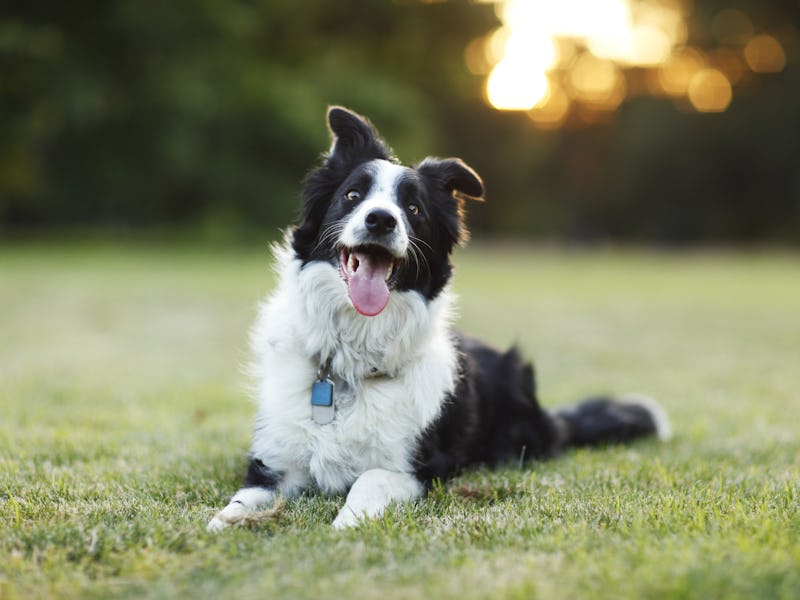'Gifted' dogs may share this one personality trait. Does your dog have it?
Playfulness has a strange association with exceptional cognitive skills, though researchers aren't sure why.

There are a small handful of known gifted “genius” dogs in the world — and researchers want to figure out what makes their brains tick.
Gifted word learner dogs are incredibly rare in the canine world. These skilled pups are able to learn the names of objects — like toys — fairly quickly and remember those names over a two-month period.
Canine researchers at the Department of Ethology at Eötvös Loránd University, Budapest turned to the possible link between animal personality and cognitive abilities. Their research suggests one specific personality trait may be common to these pups, yielding valuable insight into the unique nature of these dogs’ minds.
How they made the discovery — Border collies, for reasons still unknown, are the most common dogs to be identified as gifted word learners.
“We restricted our investigation to Border collies because most of the Gifted Word Learners belong to this breed,” Claudia Fugazza, lead researcher on the study from the Eötvös Loránd University’s Department of Ethology, tells Inverse.
The researchers sent owners of gifted Border Collies the Dog Personality Questionnaire, which asks canine owners to answer questions about their pet’s personality. Afterward, the scientists compared the answers regarding gifted Border Collies to the results of typical — non-gifted — Hungarian and Australian border collies. This analysis allowed the researchers to compare the personalities of gifted and non-gifted dogs.
The answer they found, however, may have yielded more questions than answers.
Pictured here: Whiskey, a gifted Border Collie dog from the study, holds one of its toys.
What they found — According to the study, the only personality trait that significantly differed between the gifted and typical dogs was playfulness. In other words: the gifted dogs were more playful than the other Border collies. The findings matched the researchers’ hypothesis that gifted dogs show higher levels of playfulness than other dogs.
“This study finds a relationship between extreme levels of playfulness and giftedness in word learning,” Fugazza says.
Figuring out what, exactly, these findings mean is a tougher nut for the researchers to crack. First of all, the researchers can only show there is an association between playfulness as a personality trait and the skills of gifted dogs, but they can’t prove playfulness causes the dogs to have higher cognitive skills. Fugazza says establishing causation is “difficult” but doesn’t rule out that future research could make that connection.
But that doesn’t mean researchers can’t speculate about the reasons why gifted pooches tend to be more extroverted. One possible explanation: The environment in which dogs learn words may lend itself to more playfulness.
“The rapid learning of toy names was shown to occur in playful social contexts with the owner,” the researchers write.
Playful dogs also establish eye contact with humans more quickly, which may aid in communication, thereby helping the dogs learn the names of toys more quickly.
Another possible explanation may lie in the dog breed. As working dogs, Border Collies tend to be more playful than non-working dogs, further enhancing their word-learning ability. Though the personality trait isn’t entirely due to breed, as the gifted Border collies scored higher in playfulness than their fellow typical Border collies.
“It could be a genetic trait or this extreme playfulness could be environmentally enhanced by the frequent playful interactions with the owner,” Fugazza concludes.
A video overview of the new study.
Why it matters — What motivated the researchers to study possible associations between dog personality and giftedness? Their human owners.
“It was suggested that there is a positive association between the Playfulness trait and problem-solving performance in humans,” the researchers write.
As it turns out, previous research shows that humans with exceptional cognitive skills demonstrated more “openness to experiences” than non-gifted individuals. Openness to experience might include traits like intellectual curiosity, a preference for novel experiences, and a “preference for non-traditional values” according to the paper.
Openness to experience also closely relates to playfulness, which the study says has been associated with stronger work performance and innovative behavior in humans. So, it was only fitting to see if researchers could find a similar association in dogs.
Dogs serve as good research models for studying human behavior because they evolved in the same environment as humans. By studying the roots of dog learning, Fugazza says we may be able to better understand human cognition as well.
What’s next — The scientists will be conducting ongoing research on gifted dogs through their “Genius Dog” challenge. If you think your dog is exceptionally good at the names of its toys, you can reach out to the team through their website.
Fugazza hopes further research on these rare pups can reveal “the origin of giftedness.”